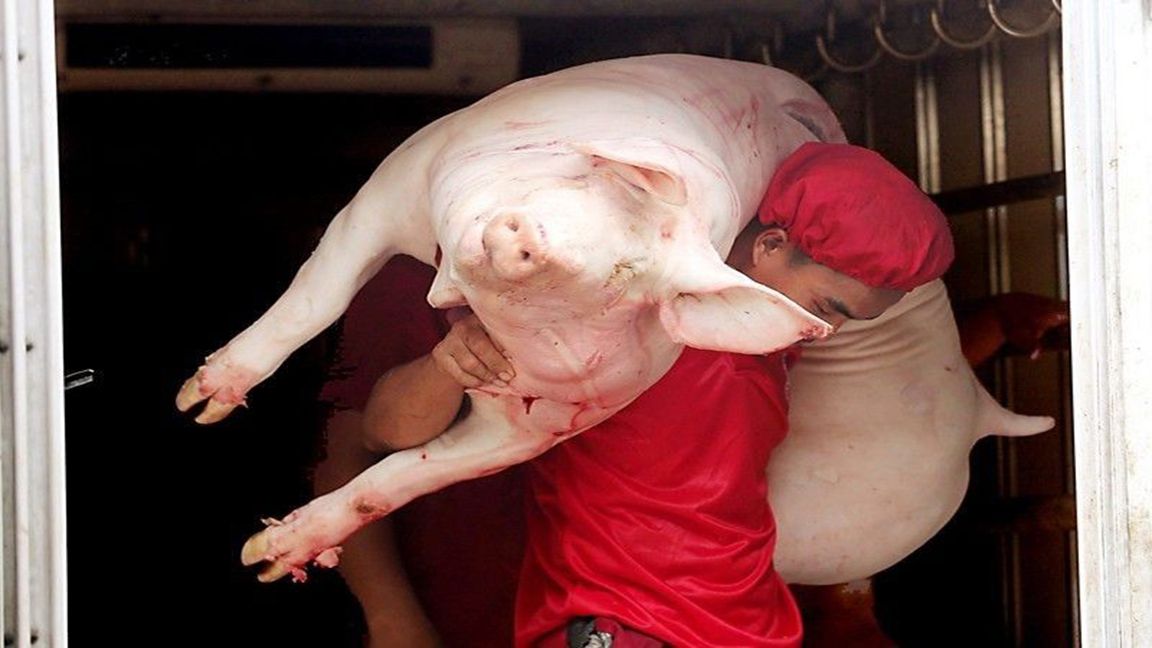The proposal to extend the minimum access volume to pork imports until December 2022 is an idea that benefits the importers, who would reap millions from buying cheap and selling high but would be a bane to consumers (who will not benefit from cheaper pork) and worst, to the hog farmers who are just now starting to repopulate their farms, that were wiped out and culled (even the healthy stocks on orders of the Department of Agriculture).
A proposal supported by the economic team--- the Department of Finance and the National Economic and Development Authority—to extend the higher minimum access volume of pork imports until December 2022, is filled with mud and stench for all parties in the market.
Further miseries
It spells further miseries for the local hog farmers, who have barely recovered from the African swine flu (ASF) last year, and for which even their heathy stocks had to be culled because of the decision by the Department of Agriculture to mass slaughter the pigs within the ASF risk radius.
It is a different story if they were fully financially- reimbursed from the culled stocks, but unfortunately they were not.
And for the consumers, the shortage of pork led to spiraling prices reaching over P300 a kilo, thus making the product too unattractive for the kitchen and the dining table.
Higher food prices
The tight supply of pork naturally led to shifting demand to chicken or fish, which prices also had climbed steeply in recent weeks.
The proposed extension until December 2022 of the MAV on pork is a pleasant news for the meat importers, who stand to benefit from cheaper imports but pass their stocks to the markets at higher rates thereby giving them a huge margin of profit.
Whichever way the government decides, there is blood to be shed from hog farmers but importers and hopefully, the consumers benefit from imports, which is supposed to (although this is not always the case) to bring pork prices down.
MAV extension
Naturally, the Meat Importers and Traders Association (Mita) supports the extension of MAV to ensure the country’s meat supply and keep retail prices in check.
“The Mita board currently feels that an extension of MAV+ up to December 2022 will be very favorable for food security and especially keeping pork prices from runaway inflation,” Mita spokesperson Paolo Pacis told BusinessMirror.
He said their group has supported implementing the 200,000-metric ton (MT) pork MAV+ (under EO 133 which ends on January 31, 2022) for all of 2022 since the deliberations on the expanded import program.
Last month, Agriculture Undersecretary Fermin D. Adriano said only about 22 percent or some 44,000 MT of the 200,000 MT pork MAV+ has been shipped in by importers.
He cited the low utilization of the MAV to the numerous non-tariff measures imposed by certain DA agencies, including the National Meat Inspection Service (NMIS), in the implementation of the expanded import program.
More harm
Hog raisers have already warned that extending the pork MAV+ would do more harm than good, especially for local production.
Leaders of the National Federation of Hog Farmers Inc. (NFHFI) and Federation of Pork Producers Inc. (ProPork) lamented that extending the pork MAV+ will not make any difference in the market prices, noting that there has been no “tangible reduction” on prevailing pork prices today.
They also argued that extending the pork MAV+ would “slow down” the local hog sector’s repopulation efforts as they continue to face further competition from imported pork products.
“The plan to extend pork MAV+ at a lower tariff until December 2022 will still not solve the inflation rate. Since issuance of those EOs [Executive Orders], there was no tangible reduction of pork retail prices as an effect of those EOs 133 and 134,” ProPork President Rolando Tambago said.
Foregone revenues
“What happened instead was it gave further sufferings for local swine farmers [with] foregone revenues of at least P3.7 billion for the government. And it did not bring down the retail price of pork in areas where there are pork shortages,” Tambago added.
Chester Warren Y. Tan, president of NFHFI, said that extending the MAV validity will just “slow down” the repopulation efforts of local hog raisers—both backyard and commercial, who are just now repopulating their farms sans financial support from DA.
“DOF is not looking at the real ground situation. Their recommendation is not pro-local farmers. Even if they flood the market with imported pork, it will not change the situation,” Tan said.
Support hog raisers
“Why not help local swine farmers ramp up local production by using those ‘foregone’ revenues! It’s a sure win for everyone—farmers, consumers and government!” he said.
Latest data released by the Bureau of Customs showed that as of December 10, the government had lost P3.679 billion in revenues since it lowered tariffs on pork imports.
Tags: #DoFandNEDA, #extendingMAVonporkimports, #importersversusfarmersandconsumers, #agriculture, #economy
